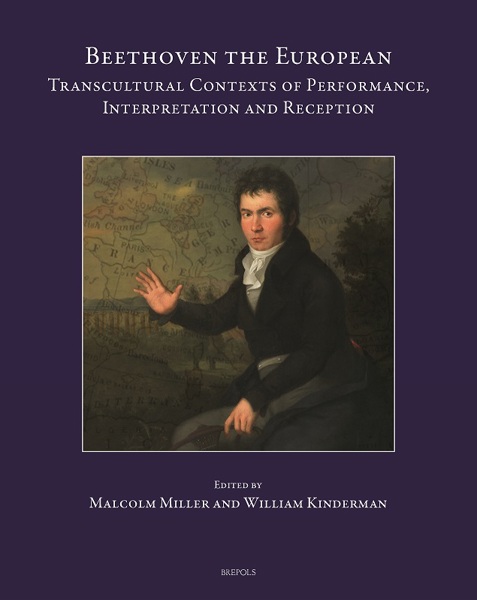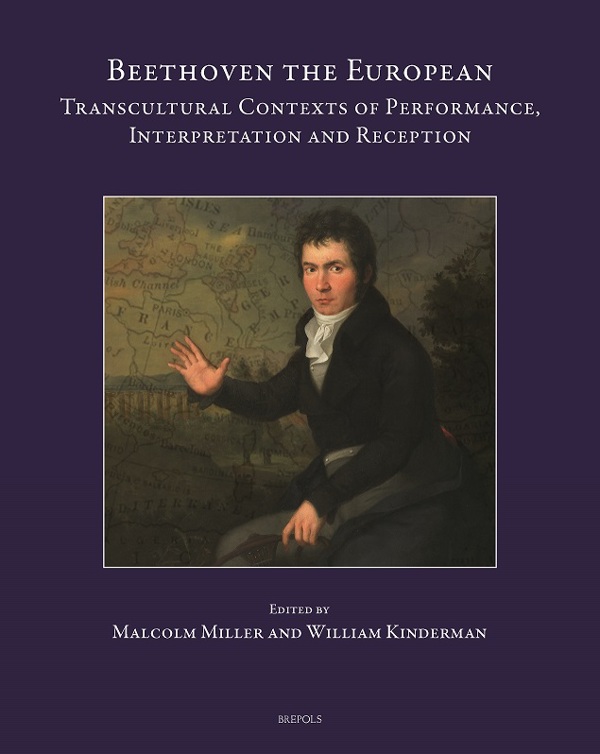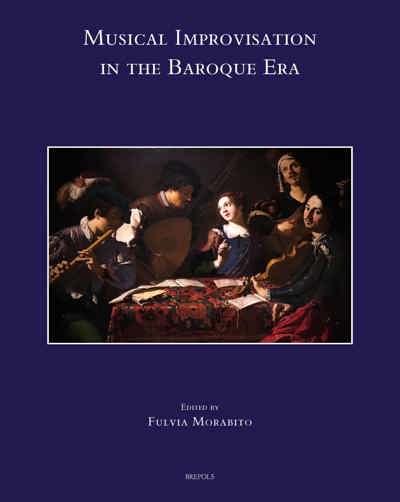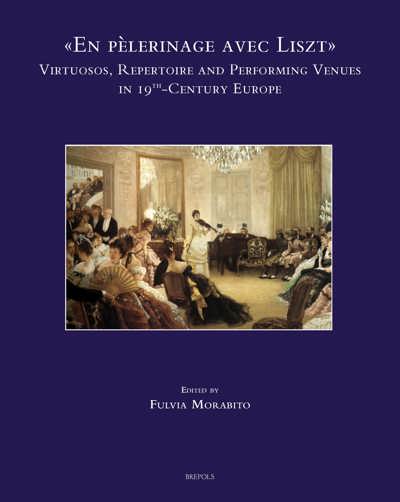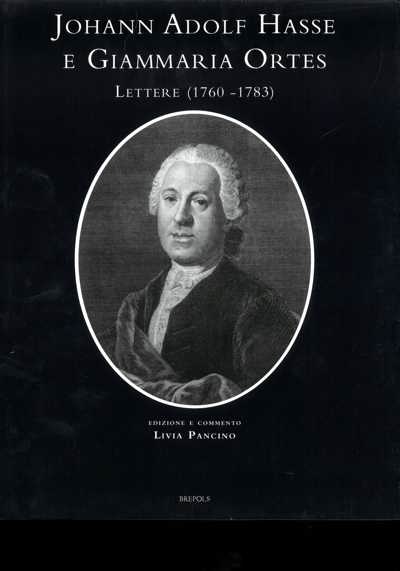
Beethoven the European
Transcultural Contexts of Performance, Interpretation and Reception
Malcolm Miller, William Kinderman (eds)
- Pages: xix + 410 p.
- Size:210 x 270 mm
- Illustrations:27 b/w, 71 musical examples
- Language(s):English
- Publication Year:2023
- € 120,00 EXCL. VAT RETAIL PRICE
- ISBN: 978-2-503-60290-5
- Hardback
- Available
This volume celebrates Beethoven’s genius as European shedding new light on varied aspects of his music
“The diversity and richness of the individual contributions are remarkable, ranging from the lofty to the recondite and, in most cases, offering new insights. Multi-author edited volumes often risk becoming uneven in quality and even conceptually inconsistent. Miller and Kinderman (and by extension also the organizers of the Lucca conference) should be praised as editors for the choices they have made, giving the floor to younger scholars, drawing in also experts from disciplines other than musicology, and for having provided, in the Preface, a conceptual basis (some may call it a staple) that compellingly ties the diverse materials together.
Finally, I must sing praises to the publisher: Brepols located in the little town of Turnhout in Belgium (I also note that the volume is printed in Italy—in short, a truly European enterprise). The editors must be pleased about how Beethoven the European was treated at the 250th anniversary of his birth, and the many contributors must cherish how their contributions made it into print. It is a deluxe production in all respects: the illustrations are sharply reproduced, and the high-quality paper and binding, like Beethoven’s music, seem likely to last for centuries.”. (Jürgen Thym, in Music & Musical Performance: An International Journal. Issue 5, 2024)
"This collective volume appears in the accustomed splendid presentation of this series. (...) The main thematic issue is Beethoven’s reception in different countries, not only at the turn of the nineteenth century, but up to our time. Some works reappear often within the volume, such as Die Ruinen von Athen, or König Stephan. Since these have been largely neglected by a musicology that was eager to promote their own idea of an allegedly ‘absolute music’, i.e., disconnected from all historical, political, social circumstances, the book can be seen to correct such biases in a time — our time — that is less prone to dogmatic ideologies than the twentieth century." (Joan Grimalt, in Ad Parnassum, XXII/42, 2024, p. 201)
William Kinderman is Professor and Krown Klein Chair of Performance Studies, University of California, Los Angeles. His books include «Beethoven: A Political Artist in Revolutionary Times» (2020), the comprehensive study «Beethoven» (2009), and «Artaria 195: Beethoven’s Sketchbook for the "Missa solemnis" and the Piano Sonata in E Major, Opus 109» (2003). As pianist, he recorded Beethoven’s last piano sonatas and Diabelli Variations. He was co-curator of the Beethoven Museum that opened in Vienna/Heiligenstadt in 2017.
Malcolm Miller, musicologist and pianist, is Honorary Associate and Associate Lecturer in Music at the Open University, UK. He has published widely on Beethoven, Wagner, and contemporary music. He is founder-editor of «Arietta», Journal of the Beethoven Society of Europe. His chapter ‘Peak Experience: High Register and Structure in the “Razumovsky” Quartets Op.59’, appears in «The String Quartets of Beethoven» (2006).
Beethoven’s music, stemming from its 18th- and 19th-century European context, communicates values of the Enlightenment bearing a seemingly universal, timeless significance. More than a quarter millenium after his birth, a 21st-century perspective offers a timely opportunity — against a backdrop of the reconfiguration of Europe and tensional power shifts across continents — to explore ways in which notions of European ideals impacted the works of Beethoven and his contemporaries and which social-political contexts shaped its reception. The essays in this volume offer cutting-edge research shedding new light on varied aspects of Beethoven’s music, and the ways it has been adapted and adopted by the musical world up to the present-day. Foremost international experts and younger scholars, gathered together with the editors William Kinderman and Malcolm Miller, share insights about Beethoven reception both within and beyond Europe, covering France, Italy, Britain, Spain, the USA and Japan. Innovative contextual studies consider topics on criticism and interpretation, performance and publication, and a variety of less familiar personalities, institutions and performing organisations. Studies of individual works illuminate Beethoven’s well-known masterpieces through novel, sometimes polemical, contextual and analytical frameworks. The volume as a whole celebrates Beethoven’s genius as European and global, marking a fascinating turning-point between the particular and the universal.
Malcolm Miller – William Kinderman
Preface
Politics, Aesthetics and Ideology
William Kinderman
Beethoven’s Ninth Symphony as a Disputed Symbol of Community: From Thomas Mann’s Doktor Faustus to the Brexiteers of 2019
Michael Christoforidis – Peter Tregear
Beethoven, the Congress of Verona, and the Concert of Europe in 1822/1823
David B. Dennis
Beethoven’s 100th Todestag in 1927: Ideological Battles over the Composer and His Music in Weimar Political Culture
Sanna Iitti
Patriotism and Islam in Ludwig van Beethoven’s The Ruins of Athens, Op. 113, and King Stephen, Op. 117
Arabella Pare
Beethoven as a Transnational Composer: Straßenmusik, Verbunkos and the Trio Op. 11 ‘Gassenhauer’
Susan Cooper
Beethoven, His Circle and Horace
Reception across Europe and beyond
María Encina Cortizo – Ramón Sobrino
Interpreting Beethoven in Spain in the 19th Century: The Arrival of His Symphonic Music to a Nascent Concert Life
Chiara Sintoni
Ludwig van Beethoven and His Reception in Piano Methods of the First Half of the 19th Century
Frédéric de La Grandville
Who Are You, Mr Bethowen?
David Hurwitz
Beethoven’s French Liturgical Organ Music – No, Really
David Rowland
Further Light on Clementi’s 1807 Contract with Beethoven
Mai Koshikakezawa
Beethoven’s ‘Moonlight’ Sonata and the Japanese Reception of Western Music
Alison Minkus
Reception and Reflection of Beethoven’s Works at the Philharmonic Society of New York (1842-1892)
Performance and Analysis
Barry Cooper
Performing Beethoven’s Vocal Music in the 21st Century
Ned Kellenberger
Beethoven’s Violin Concerto Opus 61: Toward Performance of Alternate Solo Violin Parts
Malcolm Miller
Beethoven’s Registral Structures and Strategies of Transcendence in the Late Piano Sonatas
Eftychia Papanikolaou
Uwe Scholz’s Choreographic Conception of Beethoven’s Seventh Symphony
Peng Du Krol
The Whimsical Character of Beethoven’s Salieri Piano Variations, WoO 73 (1799)
Abstracts and Biographies
Index of Names
